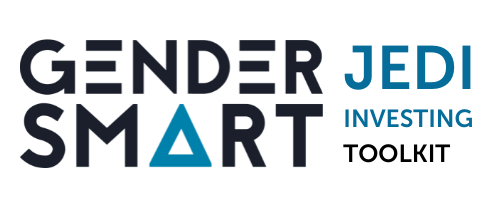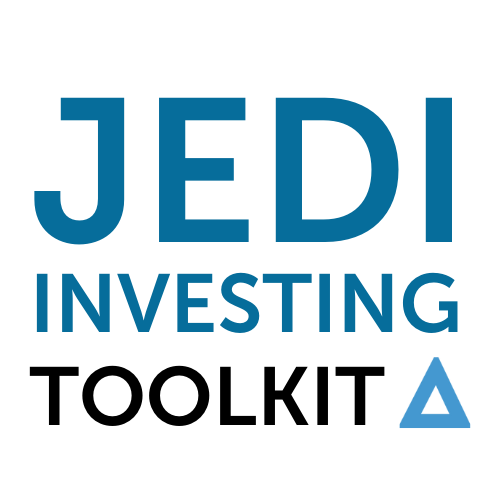Graça Machel Trust
Where is the Graça Machel Trust currently working, and how does this fit with its JEDI strategy?
The Graça Machel Trust (GMT) has programming in “Africa powerhouses” of investment in West, South, and East Africa - Nigeria, South Africa, and Kenya. Through a combination of networks of women, enterprise development support programs, and specific engagements with donors and local partners respectively. The Trust has also been conscious of launching programmes outside those countries which tend to dominate the investment landscape, such as Zambia, Malawi, Mozambique, Uganda and Tanzania. GMT Afrishela (their gender lens investing platform) has started out with a focus on Eastern and Southern Africa, as those are the regions where GMT has active enterprise development programs, but they also have a step-up ambition approach to West Africa, with a clear focus on Francophone West Africa, which has been marginalised in terms of international funding.
Further to GMT’s work across the African continent, Afrishela has previously partnered with global institutions like Italian OPES LCEF in 2020 and 2021 on Restart Fund. This was to support indigenous founder and gender lens deal sourcing and investment committee gendered impact participation. It was a reimbursable grant facility for businesses impacted by the pandemic whereby four businesses across Kenya, Rwanda and Zambia received $325K in funding. GMT has also partnered with Invest2Impact G7 2X partners in 2019 to source regional pipeline of indigenous women-owned and -led businesses with 66 women entrepreneurs from across East Africa mobilised for the Nairobi launch and 35% of 100 finalists drawn from GMT networks.
Afrishela has held regional roundtables during COVID-19 to determine the specific financial and non-financial needs of early stage enterprises and developed partnerships with regional banks like Absa Bank Kenya to support their women enterprise program. These unique insights were then used to support the fund development and structuring process. For example, Afrishela’s current mandate to provide non-dilutive blended financing options with alternative credit risk assessment metrics addresses the limited funding options available to early growth stage women owned businesses, with entrepreneurs expressing challenges around lengthy turnaround times, high interest rates, need for collateral, short grace periods. Afrishela also learned of the importance of non-financial tools such as incorporating peer support through community learnings, desire for buddy business coaching from sector specialists, and gendered secondments within post investment support (to cater for unpaid care, maternity leave or sexual reproductive health.
How does the Graça Machel Trust determine which sectors to focus on?
The Trust’s strategy has been to focus on areas where women are prevalent, but lack agency. For example, agriculture is the bedrock of most African economies, but there’s a lot of insecurity because of climate action and global geopolitics. Women work tilling the land, though often, culturally, the land itself belongs to men, even in the face of laws and regulations enacted to equalise this. Women are also widespread at the end of the value chain where the margins are lowest, for example as retail sellers. They miss out on the most lucrative part of the value chain due to lack of additional processes, dominance of middle men and limited networks. GMT’s strategy has been to look for ways to increase women’s agency in sectors such as this.
Another strategy to achieve this goal has been creating local networks to improve the agency of women working in a sector by connecting them to new peers and potential partners, and GMT can leverage the power of these networks to help crowd in other institutional players. In Zambia and Malawi, the Trust worked on an African Food Basket to form a network of women seed producers, supporting them to come together to increase their volume and, as their scale increased, using their volume to negotiate with banks in their region as well as crowding additional support from funders. The women in the network are able to use their agency to solve their own problems. GMT acted as facilitator for the convening, and provided the credibility of its platform. By leveraging its influence, GMT is able to bring in investors which would not typically speak to women entrepreneurs in these contexts, because they trust GMT as the fund manager nurturing, growing, and supporting these networks over time. This strategy and initiative is deeply rooted in the local context, and has been co-created with local voices and partners to meet these specific gaps.
To complement these efforts, the investment strategy at Afrishela intentionally seeks to elevate women where they are most prevalent within the particular country whilst leveraging opportunities for greater participation within other sectors. For example, agriculture and trade are dominant across all Afrishela’s focus countries, whilst manufacturing is more established in Kenya, Uganda and Zambia. Education and health are stronger in Kenya and Rwanda whilst the financial services sector is more established in Kenya and South Africa. Afrishela seeks to prioritise these sectors within each country.
How is GMT walking the JEDI talk and contending with country bias?
Even though GMT is a Pan-African institution (the Secretariat of the Graça Machel Trust is in South Africa, with a satellite office in Kenya), they recognise that they may also have biases when it comes to a particular target country. For that reason, they work directly with local networks; or tap their network to help assemble a list of recommended, pre-qualified people to work with, and then take those people through a formal recruitment process. GMT goes through this process to avoid falling into an in-network bias, and unintentionally perpetuating a power hierarchy that already exists. By asking people who live within the environment, they find that they are able to get a robust sense of local talent. And by taking steps such as these, GMT is able to ensure they are talking to the desired target group, not just those who are a reflection of their experience, exposure, or education.
For investing, GMT has an inclusive deal sourcing process with metrics that deliberately target female representation within ownership (51%), leadership (40-60%), workforce (33%), customer (33%) and value chains (33%) of potential investee companies whilst deliberately targeting enterprises that work with informal sector within supply chains and intentionally targeting underserved communities with products and services.
GMT’s expansion mandate seeks to raise a $200 million pan-African vehicle targeting all regions of the continent and their deliberate impact focus seeks to integrate youth, the informal economy and low-income communities through their targeted investee businesses. GMT has challenged themselves using impact metrics, embedding these within impact-linked performance loans and impact carry to align objectives towards these shared goals amongst relevant stakeholders.
Lastly, GMT can bring in synergy with their sister programs like enterprise development (Women creating wealth) and network building (Women economic and social advancement ) for targeted deal sourcing from the program graduate pools. They also use in-country women’s networks for reference due diligence checks, and post investment support through in-country based mentors to ensure contextual understanding.
Snapshot
Firm: Graça Machel Trust
Fund Name: Afrishela Fund I
Type: $30 million gender lens investment vehicle
Funding Structures: Innovative financing instruments including revenue-based, impact-linked debt and equity instruments, and other non-collateralised finance
Focus: Driving innovative blended capital to early growth stage women-owned and led businesses aligned with the Trust’s current programmatic interventions, research focus areas, and network activity to build a track record in key priority sectors of agriculture, manufacturing, education, health, renewable energy, trade and financial services.
Location: South Africa and Kenya; investing in East and Southern Africa
“It’s not telling people what to do. It’s not instructing people on how to do what they already do. It’s not assuming we understand what needs to be done from an Uganda or Zambia perspective. It’s giving people a big sister, it’s telling them, ‘we are with you.’”

